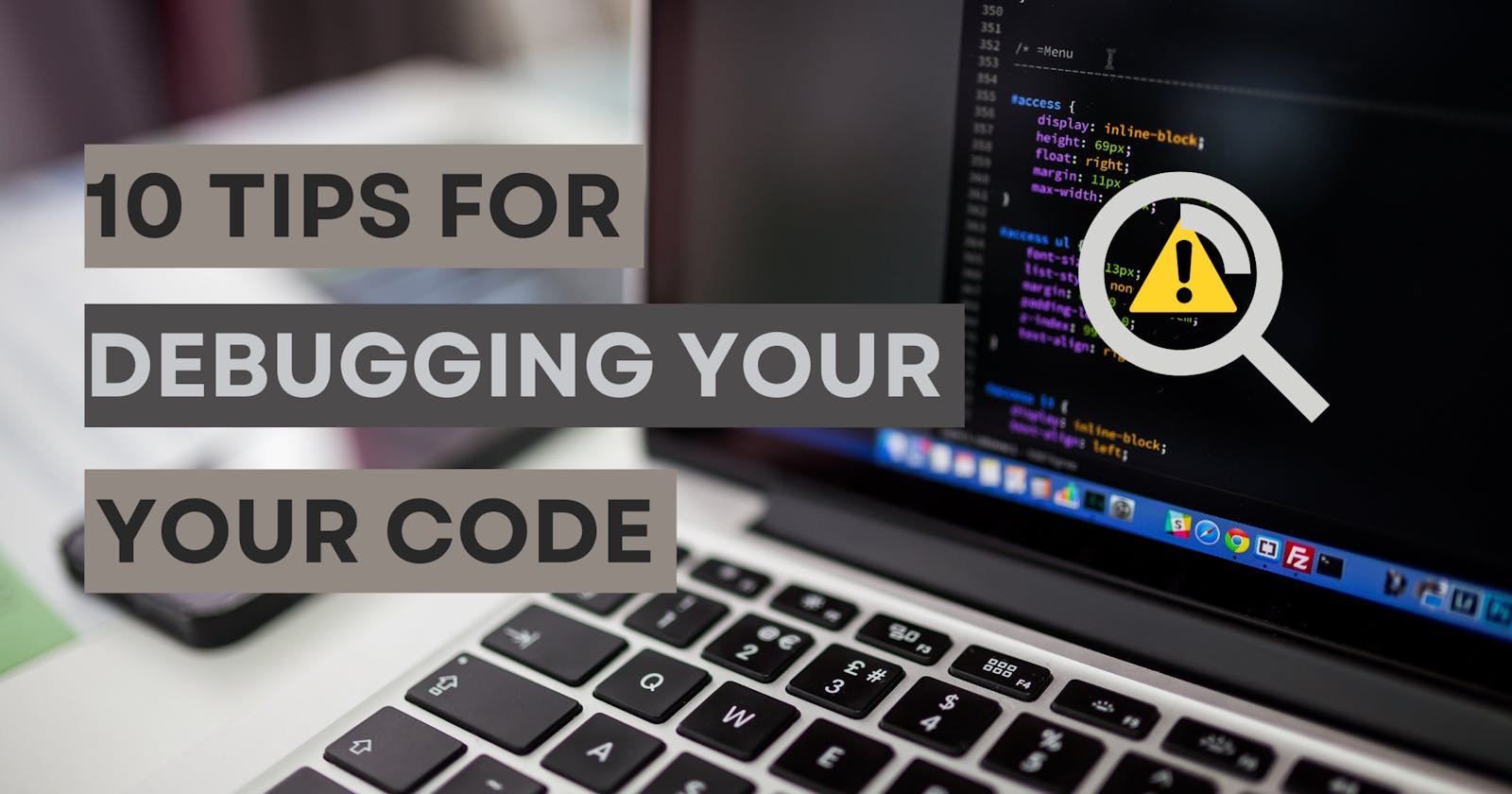From novice to pro: mastering the art of debugging.
10 Tips for Debugging your code more efficiently.
Table of contents
Debugging your code can be a frustrating and time-consuming process, but it is an essential part of the software development process. Here are 10 tips to help you debug your code more efficiently, but first let me tell you what is debugging.
What is Debugging?
Code debugging is the process of identifying and fixing errors in a computer program. These errors, also known as bugs, can cause the program to malfunction or behave unexpectedly. Debugging is a crucial step in the software development process and is essential for producing high-quality, reliable software.
10 Tips for Debugging your code
Here are 10 tips to help you debug your code more efficiently.
1. Identify the error:
The first step in debugging is to understand what the error is and where it is occurring. This will help you narrow down the problem and focus your efforts on finding a solution.
2. Use print statements:
Adding print statements to your code can help you understand what is happening at different points in the program and identify where the error is occurring.
3. Use a debugger:
A debugger is a tool that allows you to step through the code line by line, examining the values of variables and the state of the program at each step. This can help you identify the root cause of the error.
4. Check for syntax errors:
Syntax errors are mistakes in the structure of the code that can prevent it from running. Check your code for any syntax errors and fix them before trying to debug the error.
5. Use automated testing:
Automated testing involves writing code that tests the functionality of the program. This can help you identify errors early on and prevent them from becoming more serious issues.
6. Check for logical errors:
Logical errors are mistakes in the logic of the code that can cause it to produce incorrect results. Look for logical errors by examining the flow of the code and the conditions that are being checked.
7. Divide and conquer:
If you are having trouble finding the root cause of an error, try breaking the code down into smaller pieces and testing each piece individually. This can help you identify where the error is occurring.
8. Check the documentation:
The documentation for a programming language or library can be a valuable resource for debugging. Check the documentation to see if there are any known issues or solutions to the problem you are facing.
9. Ask for help:
If you are struggling to find a solution to the error, don't be afraid to ask for help. Other members of the development team or more experienced developers may be able to offer valuable insights or suggestions.
10. Keep calm and carry on:
Debugging can be frustrating, but it is an important part of the development process. Stay focused and keep working on the problem, and you will eventually find a solution.
Conclusion
In conclusion, debugging is a crucial step in the software development process that involves identifying and fixing errors in a computer program. There are many techniques and tools that developers can use to debug code, including printing debug messages, using a debugger, using automated testing, and reviewing code with others. Debugging can be a challenging process, but it is an important skill for all developers to learn and master. By following these tips and staying focused, you can effectively debug your code and produce high-quality, reliable software.
